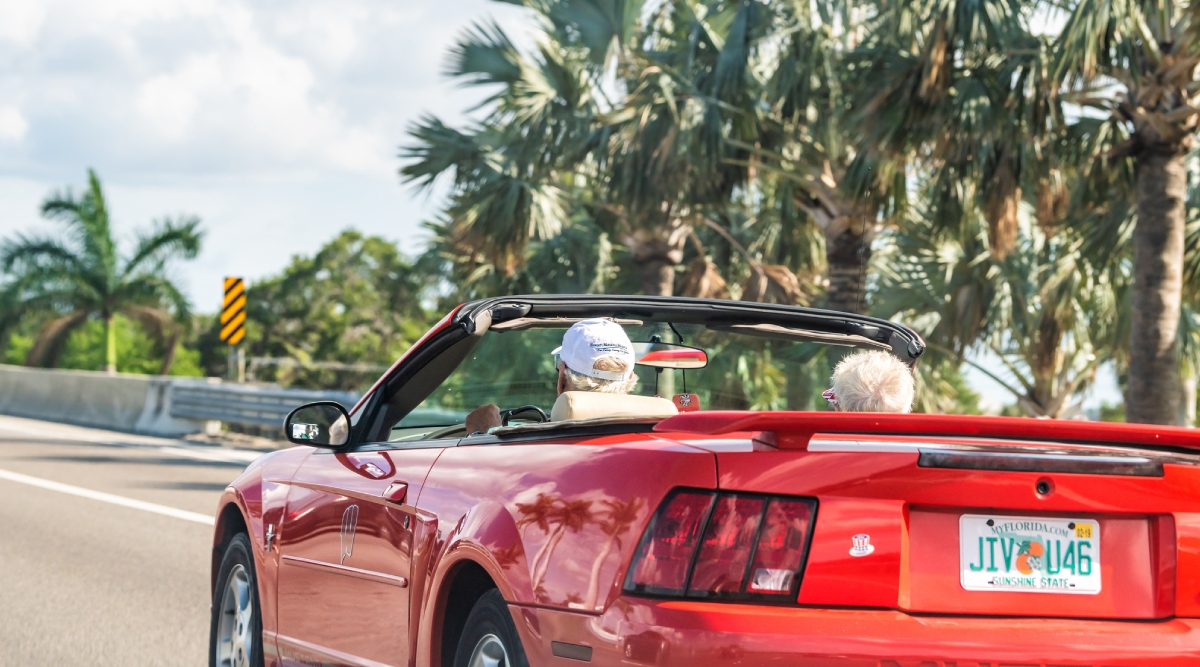Just as flocks of birds migrate north after a harsh winter, so do snowbirds come summertime. Snowbirds are flocks of families fleeing their Florida or warm weather homes in favor of the milder parts of the East and Midwest. Whether you’re a self-proclaimed snowbird or taking advantage of their departure, we’re answering questions and offering tips for snowbirds and vacation renters.
When Do Snowbirds Leave Florida?
Though it varies each year, most snowbirds leave Florida in late April. Heat and humidity continue to rise steadily through spring and summer, keeping most snowbirds out of state until early October. Snowbird season also benefits sun-seeking vacation renters—thanks to an increased inventory of rentals.
But what if you’re a snowbird swapping out the sweltering tourist season for the stunning scenery of the Colorado mountains? Even the most experienced snowbirds can learn more about caring for their two homes.
Tips for Snowbirds
What Temperature to Leave a Vacant House in the Summer
While you’re away, aim for an average temperature of 80-85 degrees. Humidity should hover between 30% and 50%.
Your family can escape the warmth, but your home has to take the heat—regardless of whether or not you host renters. If you don’t take the proper precautions, you may come back in October to find warped woodwork, mildew, or mold.
Here’s how to minimize moisture and regulate indoor humidity:
- Program your air conditioner to run for a few hours a day
Pro Tip: This is by far the most important measure. Not only does AC keep your house cool, it removes moisture from the air. - Close dampers in the fireplace, if applicable
- Cover vents in the kitchen and bathroom with plastic
- Weather seal all windows and doorways
If you haven’t already, install a smart thermostat—like the Nest or Ecobee3—so you can track and monitor temperature and humidity levels from any location.
Safeguard from Storms
From minor thunderstorms to heavy hurricanes, protect your home from the elements.
If you’re not renting out your home, remove all objects from your porch and patio. If you are renting it out, place valuable outdoor items in a locked closet and replace them with renter-friendly gear. For example, swap out your wood Adirondack chairs for plastic versions.
Install hurricane shutters. Make this a priority, as hurricane season and summer are one and the same.
Protect Your Valuables
For vacant houses, keep blinds and drapes closed to prevent curious eyes from peeking into your house. Stop all mail and newspaper deliveries so they don’t pile up on your porch.
No matter how picturesque your beach town is, theft happens everywhere. Pick a closet (with a lock) to be your designated owner’s closet. No room in your house? Rent a self-storage unit, of course!
Finally, invest in an alarm system. If you already have one, upgrade to a wireless security system. Most of these monitoring devices have their own app, so you can keep an eye on your house 24/7.
Share Your Home
Take advantage of all the ways to rent out your vacant home. Vacation rental apps like Airbnb and VRBO make it easy to share your space—all while making a profit. For a small listing fee, most sites will throw in property damage protection and insurance coverage.
If you’re gone for a longer period of time, you may need to hire a property management company. Though more costly than an Airbnb-style site, a rental company is a more hands-on approach. From cleaning and property promotion to repairs and rental rules, the property management company can handle everything.
If your beach house is in the Florida area, check out our storage units near you.
